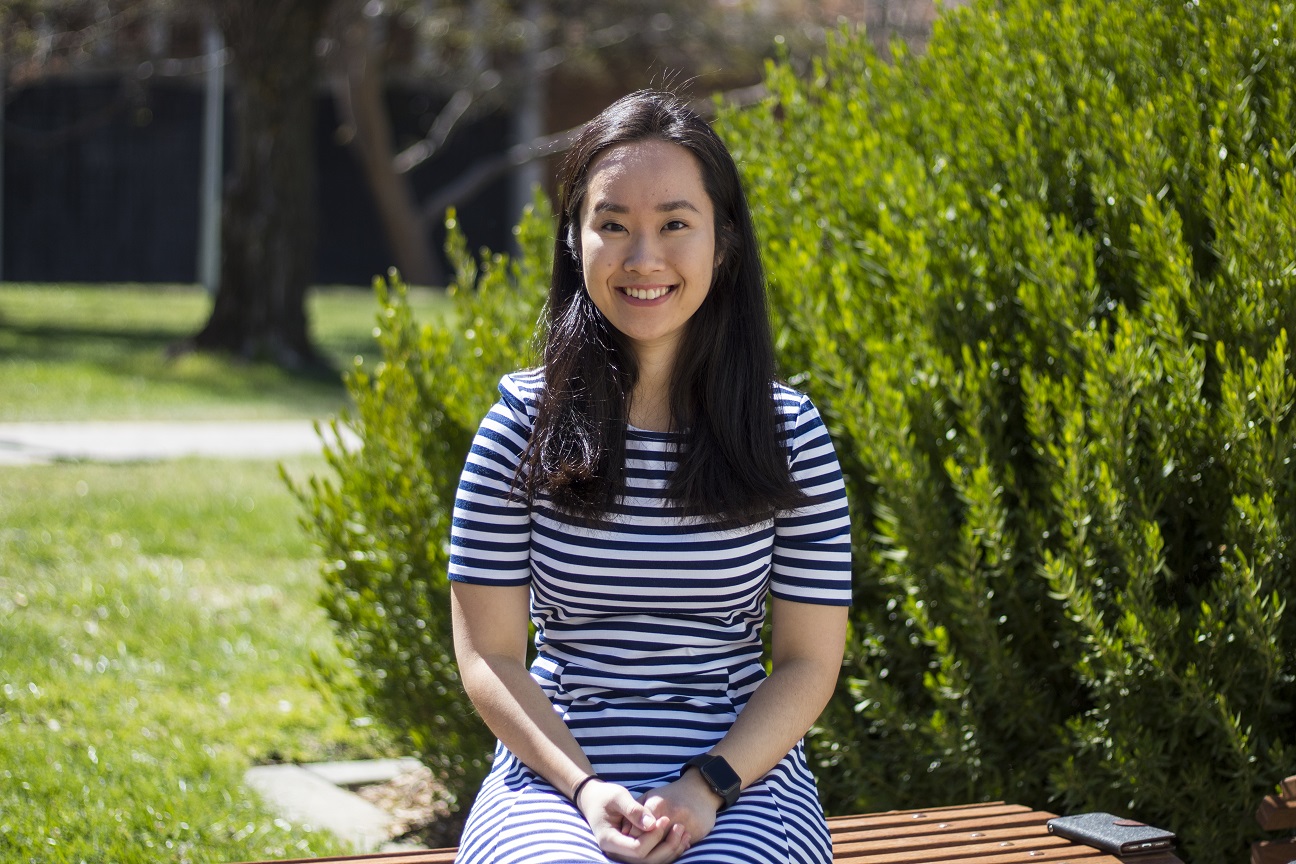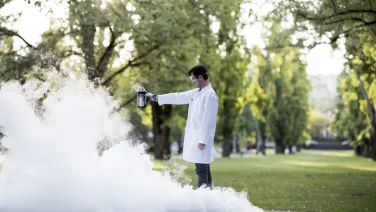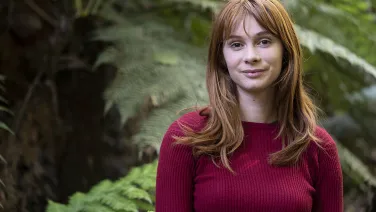From ANU to Cambridge: Marika is changing healthcare on the nanoscale
Marika Niihori pictures healthcare on a much smaller scale: the nanoscale, to be exact.
“Nanoscale technology looks at very tiny things, over 100 times smaller than the thickness of your hair,” says Bachelor of Philosophy (Honours) graduate Marika. “You can’t see it, and we’re looking at building from the atom level upwards.”
Marika’s research into very tiny things has resulted in some very big news: she has been awarded one of 77 Gates Cambridge Scholarships, one of the most prestigious scholarships in the world.
The scholarship will allow Marika to continue her research as a Physics PhD student at the University of Cambridge and join a network of global scholars, where she hopes to build new, nanoscale molecule detectors called ‘biosensors’.
“These ultra-sensitive biosensors would detect hormones and other key molecules in biofluids. It’s a step towards creating compact, personalised medical and wearable sensors.”
So, how do you make a biosensor? One answer lies in ‘plasmonics’, which is all about how nanostructures manipulate and confine light.
“Metallic nanoparticles are placed on top of a metallic mirror, which creates these really tiny gaps between mirror and the nanoparticle. This creates a hotspot of electric field at that gap,” Marika explains.
“When a particular molecule gets stuck in that gap, we’re able to sense it using light. We’re able to look at individual atoms or see how these hormones, drugs or molecules are interacting with each other.”
During her research-intensive ANU Bachelor of Philosophy (Honours), Marika says she became fascinated with the intersection between physics and biology.
“Even from first year, I was exposed to cutting-edge technology here at ANU. Research is my passion, and I’ve always enjoyed the aspect of introducing medicine into physics.”
No stranger to the nanoworld, she’s previously worked with the ANU Research School of Physics to understand and improve nanowire LED technology. Combined with her passion for helping people, she hopes to take a new leap into the frontier of nanotechnology during her PhD.
“The magic of biosensors is that they will become the next generation of medical technology. We need technology that’s efficient, cost-effective and also accessible to millions of lives.
“Health problems are something that we all end up facing. I’ve always thought ‘How could I play a role in improving the lives of a lot of people?’ If we can create a platform that’s easy to use, like an app, we’ll be able to continuously monitor health conditions using compact and wearable biosensors.”
Some nanotechnologies are already being deployed, but Marika says in the next decade we’ll see a more drastic shift towards biosensors in healthcare.
But another area which is also rapidly changing is the Women in STEM movement.
“I am a very big advocate for women in STEM,” she mentions. “There is still a lot of improvement to be made. But now there’s a larger, more established inclusive community. We can support, empower and inspire each other, and I hope to do so for the next generation of scientists.”
Marika describes that the gender imbalance in physics and mathematics was a norm for her growing up, but she is determined to help turn that slow progress into a much faster one.
“Sometimes it’s discouraging, but it makes me even more motivated to try to make even the smallest steps forward. I was able to help organise and direct the Women in STEM lunch at ANU, so hopefully I’ll be able to participate and contribute to the community at Cambridge too.”
Thanks to Marika, it seems the small world of nanotechnology is about to get a lot a whole lot bigger. We wish her all the best as a Gates Cambridge Scholar: it’s a massive achievement, on any scale.
Are you looking for an Undergraduate degree packed with real life research opportunities? Jump from the nanoscale into the bigger picture at ANU with the Bachelor of Philosophy (PhB) program.





